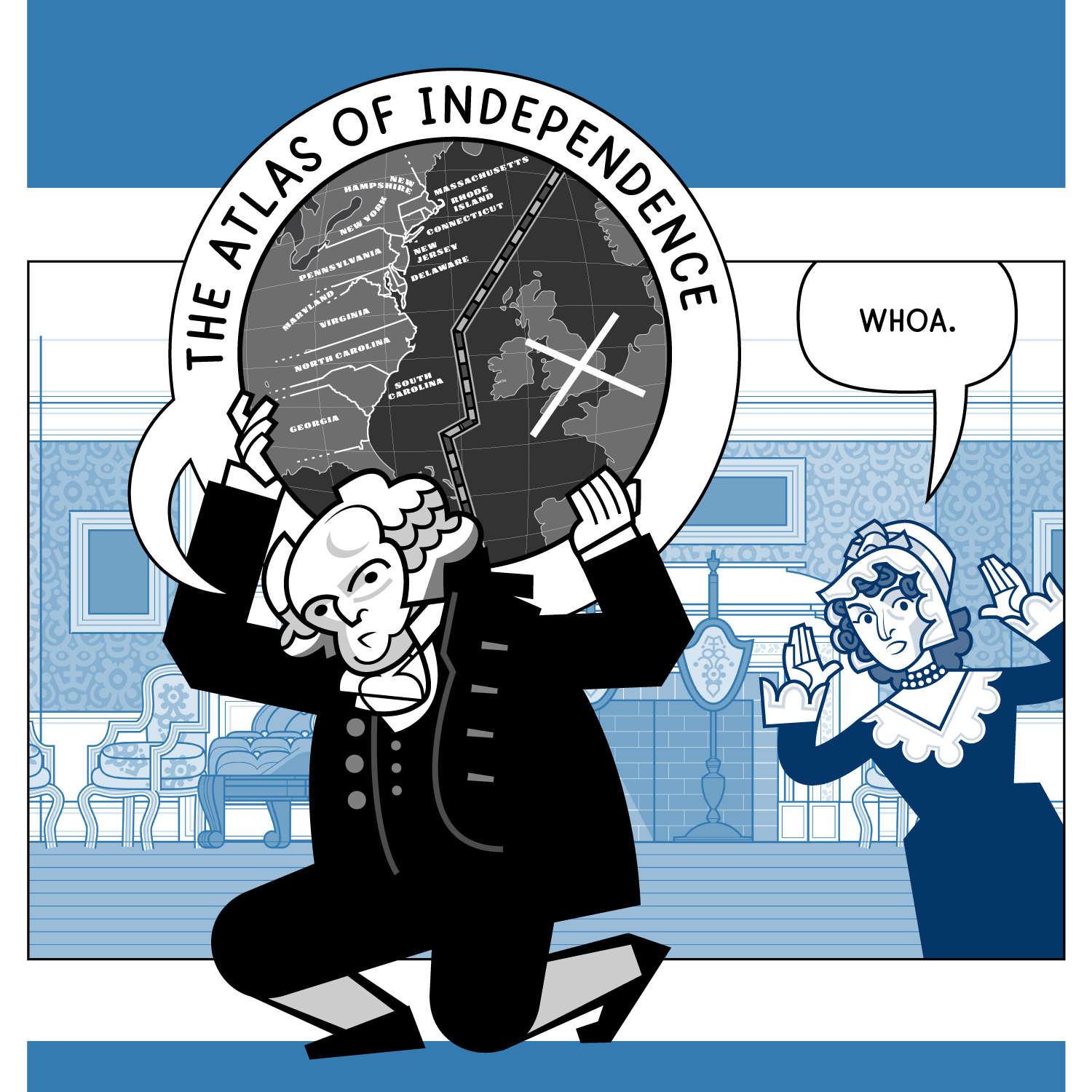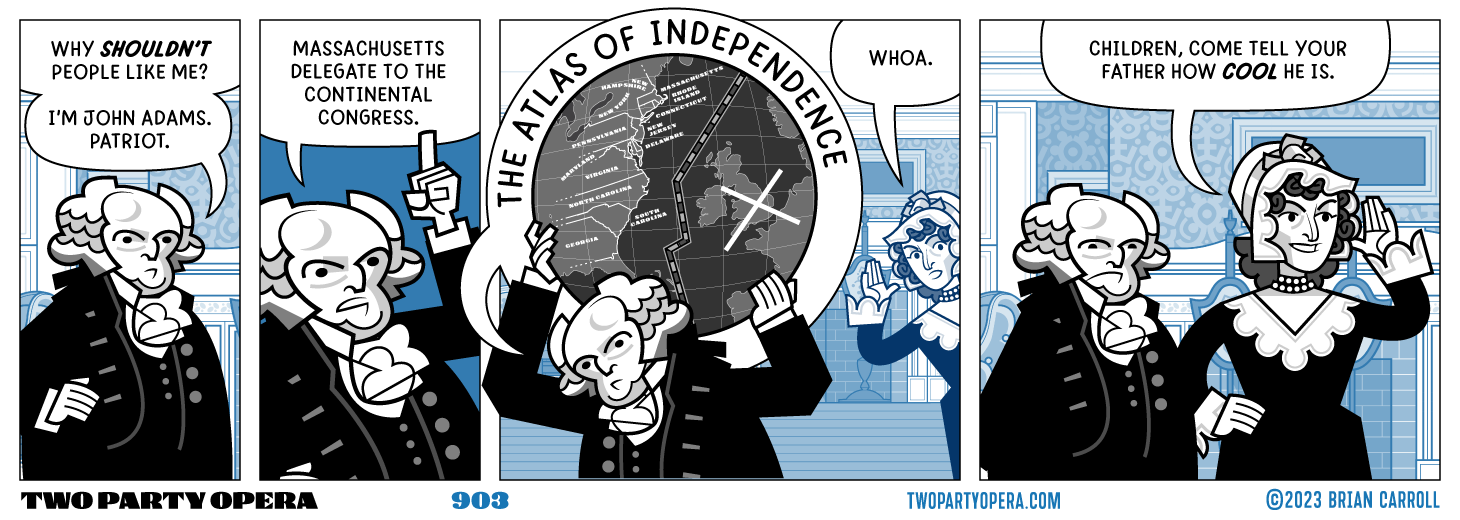The "deep conceptions and nervous style," which made Mr. Adams stand forth in the memory of Jefferson, who had the strongest reasons for retaining and indelible impression of the scene, as "the colossus of independence" on the floor of congress, "which," as he further declares, "gave him a power of thought and expression which moved the members from their seats," which sent Richard Stockton home, testifying that he was "the atlas of independence..." -The Works of John Adams, Second President of the United States: with a Life of the Author, Notes and Illustrations, by his Grandson Charles Francis AdamsWhich is backed up by Stockton's son writing to John Adams in 1821:
"I well remember that on my father’s first return home from Congress, in the summer of 1776, after the fourth of July, he was immediately surrounded by his anxious political friends, who were eager for minute information in respect of the great event which had just taken place. Being then a boy of some observation, and of very retentive memory, I remember these words, addressed to his friends. ‘The man to whom the country is most indebted for the great measure of independence is Mr. John Adams, of Boston. I call him the Atlas of American independence. He it was who sustained the debate, and by the force of his reasoning demonstrated not only the justice, but the expediency, of the measure.’ This I have often spoken of to others, and distinctly remember the very language which he used."Anyway, here's the full art for panel 2, showing the Atlas of Independence in all his glory!

